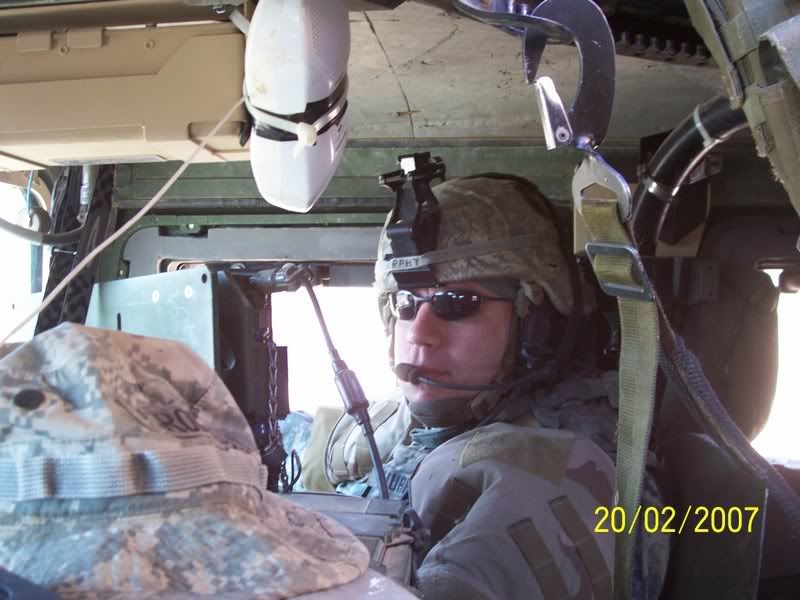Writin' and stuff
As many people know I'm a frustrated writer. Like many people who actually make their living writing I'm also an avaricious reader. Some of my favorite days are the ones spent sitting on a couch at Barnes and Noble reading and people watching. I have an unfortunate habit of spending too much money there, but there are probably worse places to blow a paycheck.
There isn't much of a selection at the PX here, and I can only get so much stuff from amazon.com, so I end up reading alot of 'crappy science fiction' which is about the only thing they stock at the PX that I can really stand. I've discovered that alot of people getting paid to write aren't really very good. That's the bottom line.
So I thought I'd blog a little bit about what I understand to be the necessities of a good novel in any genre.
Number one is characterization. Now I've seen several people saying characters should be sympathetic to the audience. They should be flawed in some way so that readers can identify with them. One of my favorite authors Robert Heinlein didn't write flawed characters. He wrote about good, strong, capable people in adverse and unusual circumstances. I'm just trying to slog my way through a rather terrible book right now and the writer has just ham handed his way through some of his major characters. People who are supposed to be very successful in their career fields, so they must obviously be capable in some way or another, and yet they have these glaring character or personality flaws. Rampant dislike/distrust of authority, an almost aspberger's like inability to appreciate the social dynamic surrounding them, or just blatantly self-serving and dishonest. I think it was Anne Frank who said that despite alot of evidence to the contrary she still believed people were generally good at heart.
I look around at the people I know, family, friends, and comrades and I honestly believe this to be true. Oh some may have poor impulse control, they may take some odd joy in being manipulative, or have an inability to empathize, but generally they're good people. I firmly believe that every person I know has it in them to be a hero and not the goat. I think the vain, self-serving coward is probably much more rare than the person who's going to do the ring thing under adversity.
Dialogue. Many a newby writer's weakest point. I mean look at 'Star Wars', one of the greatest sci-fi/fantasy movies of all time. The dialogue is terrible. It was so bad that the actors still make fun of it to this day. Lucas researched characterization to a tee. He studied the fundamentals of mythological storytelling and captured these to create a character set in which everyone found someone to love and hate. But he never figured out how to make them speak. He was only saved by setting his universe 'A long time ago, in a galaxy far far away'.
I'm not very good at dialogue either, so I take notes. When I'm around the guys talking, and I hear something good I write it down, or try to remember it. I try to notice how people from different cultures speak, and carry themselves. I've got a ways to go, but I think just observing reality is going to help me there.
Another key is plot. Storyline. Arc. Or 'where the heck is he going with this thing, and why doesn't he hurry up and get there'? This is harder to do, and I think you actually need a story written up, and then be willing to have it savaged by your first readers in order to clean it up and move the plot along. A story doesn't need the entire Napoleonic wars as its backdrop like the Sharpe novels, Horatio Hornblower, or War and Peace. Michael Sharra wrote a great book whose title I can't currently remember, but it was made into a Kevin Costner movie called 'For the Love of the Game'. The entire story was a fading pitcher's very last game. A few flashbacks to what led him there to reveal more of his character, but mostly it followed this guy struggling to leave a mark in his chosen career in what he knew to be it's twilight. Amazing stuff!
Well, there's a few paragraphs about what I think about when I think about writing. A few of my favorite writers, John Scalzi and Stephen Pressfield both have books about writing, and their bottom line advice is to pick a story and start writing. The details will take care of themselves.
It's kinda hard to focus on writing right now in these circumstances, but maybe I too should just pick a story and start writing. Well, we'll have to see.
"A long time from now, in a galaxy that would look pretty familiar to most people holding this book in their hands there was this guy, and he had a problem..."
MTFBWY

No comments:
Post a Comment